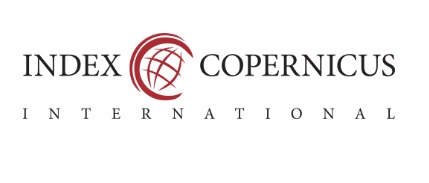Unity in Diversity: The case of FCC
Abstract
Aim: This paper aims to shed light on the question, "How did FC College’s missionary college status present a unique challenge for the institution between 1973 and 2002, and how did the institute recover its enduring legacy of national unity?" In addition, the study intends to provide a high-level overview of how FC College has attempted to accomplish all this by referencing specific cases involving two or more racial/ethnic student groups that are well-known for their contentious interactions on campus.
Method: The research methodology employed in this study is primarily descriptive and analytical in nature,covering topics such as the institute’s history, the radical changes brought about by several state policies, and the various efforts put forth by the university’s administration to restore the institute to its former academic glory.
Findings: The case of the FCC demonstrates that there is still a functional mechanism to involve the wide range of competing interests and identities that permeate modern society and the institutional milieu in which academia operates. The politicisation of universities can be avoided if a method is introduced that firmly emphasises the liberal and progressive side of all competing interests.
Implications/Novel Contribution: This research is significant because it sheds light on a promising approach taken by some educational institutions, namely that fostering a welcoming and inclusive learning environment that encourages students to explore their passions and develop their talents can also help reduce tensions between different groups based on race and ideology. While this is just one example, identity-based tensions persist at all Pakistani universities.
References
Arockiyasamy, G., Surendheran, K., & Bullard, S. K. (2016). The influence of playing video games on academic performance among graduates of Karunya university. Journal of Advances in Humanities and Social Sciences, 2(3), 119-132. doi:https://doi.org/10.20474/jahss-2.3.1
Bahadur, K. (1998). Democracy in Pakistan: Crises and conflicts. New Delhi, India: Har-Anand Publications.
Cohen, S. P. (2011). The future of Pakistan. Washington, D.C: WA: Brookings Institution Press.
Cox, J. (2002). Imperial fault lines: Christianity and colonial power in India, 1818-1940. Palo Alto, CA: Stanford University Press.
Farooq, A. R. (1990). A survey of the problems and prospects of teacher education in Pakistan. Islamabad, Pakistan: Academy of Educational Planning and Management, Ministry of Education.
Goel, A. (2004). Education and socio-economic perspectives of women development and empowerment. New Dehli, India: Deep and Deep Publications.
Haroon, K. (2003). A white trail: A journey into the heart of PakistanâA ̆Zs religious minorites ́ . New Dehli, India: Westland Limited.
Hoodbhoy, P. (1998). Education and the state: Fifty years of Pakistan. Oxford, UK: Oxford University Press, USA.
Isani, U. A., & Virk, M. L. (2005). Higher education in Pakistan: A historical and futuristic perspective. Islamabad, Pakistan: National Book Foundation.
Kahraman, C. (2016). Role of geography in environmental education. International Journal of Humanities, Arts and Social Sciences, 2(4), 121-125. doi:https://doi.org/10.20469/ijhss.2.20001-4
Le, Q. A. (2016). The impact of globalisation on the reform of higher education in Vietnam. International Journal of Business and Economic Affairs, 1(1), 29-35. doi:https://doi.org/10.24088/ijbea-2016-11005
Liubov, G., & Michail, L. (2007). Noospheric ethical/ecological constitution of mankind. Moscow, Russia: Inter Press.
Lodhi, M. (2011). Pakistan: Beyond the" Crisis State". New York, NY: Columbia University Press.
Maderazo, M. A. (2016). The change management in an academic institution: An organizational perspective. Journal of Advances in Humanities and Social Sciences, 2(6), 310-320. doi:https://doi.org/10.20474/jahss-2.6.3
Malik, A. (2004). The champions of change: The institutional development and the change management in education sector: The role of teacher. Islamabad, Pakistan: Pangrahics.
Mansouri, F. (2017). Interculturalism at the crossroads: Comparative perspectives on concepts, policies and practices. Paris, France: UNESCO Publishing.
Mary, A. (2012). Forman christian college: (A chartered university) âA ̧S 2002-2012: The armacost years. ̆ Retrieved from https://bit.ly/2Jqhz8W (accessed on 13 June 2017)
Muborakshoeva, M. (2012). Islam and higher education: Concepts, challenges and opportunities. Abingdon, UK: Routledge.
Murray, J., & Kosnik, C. (2011). Academic work and identities in teacher education. Journal of Education for Teaching, 37(3), 243-246. doi:https://doi.org/10.1080/02607476.2011.587982
Nahal, C. (1993). The slat of life: The ghandhi quartet. Ahmedabad, India: Allied Publishers Limited.
Naviwala, N. (2016). Pakistan’s education crisis: The real story. Washington DC: WA: Woodrow Wilson International Center.
Rahman, A. (2003). Higher education science and technology in Pakistan: A matter of national survival. Karachi, Pakistan: Karachi Printing Press.
Rashid, A. (2015). Educational crisis and reform: Perspectives from South Asia. Oxford, UK: Oxford University Press.
Reza, F., Rusidah, S., & Forasidah. (2017). The influence of interpersonal communication and organizational culture on job satisfaction of Academics University Achmad Yani Banjarmasin. International Journal of Business and Economic Affairs, 2(5), 310-316. doi:https://doi.org/10.24088/ijbea-2017-25005
Riaz, A. (2008). Faithful education: Madrassahs in South Asia. New Brunswick, NJ: Rutgers University Press.
Shami, P. (2005). Education in Pakistan: Policies and policy formulation. Karachi, Pakistan: National Book Foundation, Ministry of Education.
Siddiqui, S. (2007). Rethinking education in Pakistan: Perceptions, practices and possibilities. Karachi, Pakistan: Paramount Publishing Enterprise.
Spolsky, B. (2009). Language management. Cambridge, UK: Cambridge University Press.
Warwick, D. P., & Reimers, F. (1994). Hope or despair? Learning in PakistanâA ̆Zs primary schools ́ . London, UK: Praeger.
Yildiz, F. U., & Kayili, G. (2015). Examining the effects of computer-assisted preschool educational activities on childrenâA ̆ Zs intuitive mathematical ability. ́ Journal of Advances in Humanities and Social Sciences, 1(1), 1-8. doi:https://doi.org/10.20474/jahss1.1.1

This work is licensed under a Creative Commons Attribution-NonCommercial 4.0 International License.












.png)










